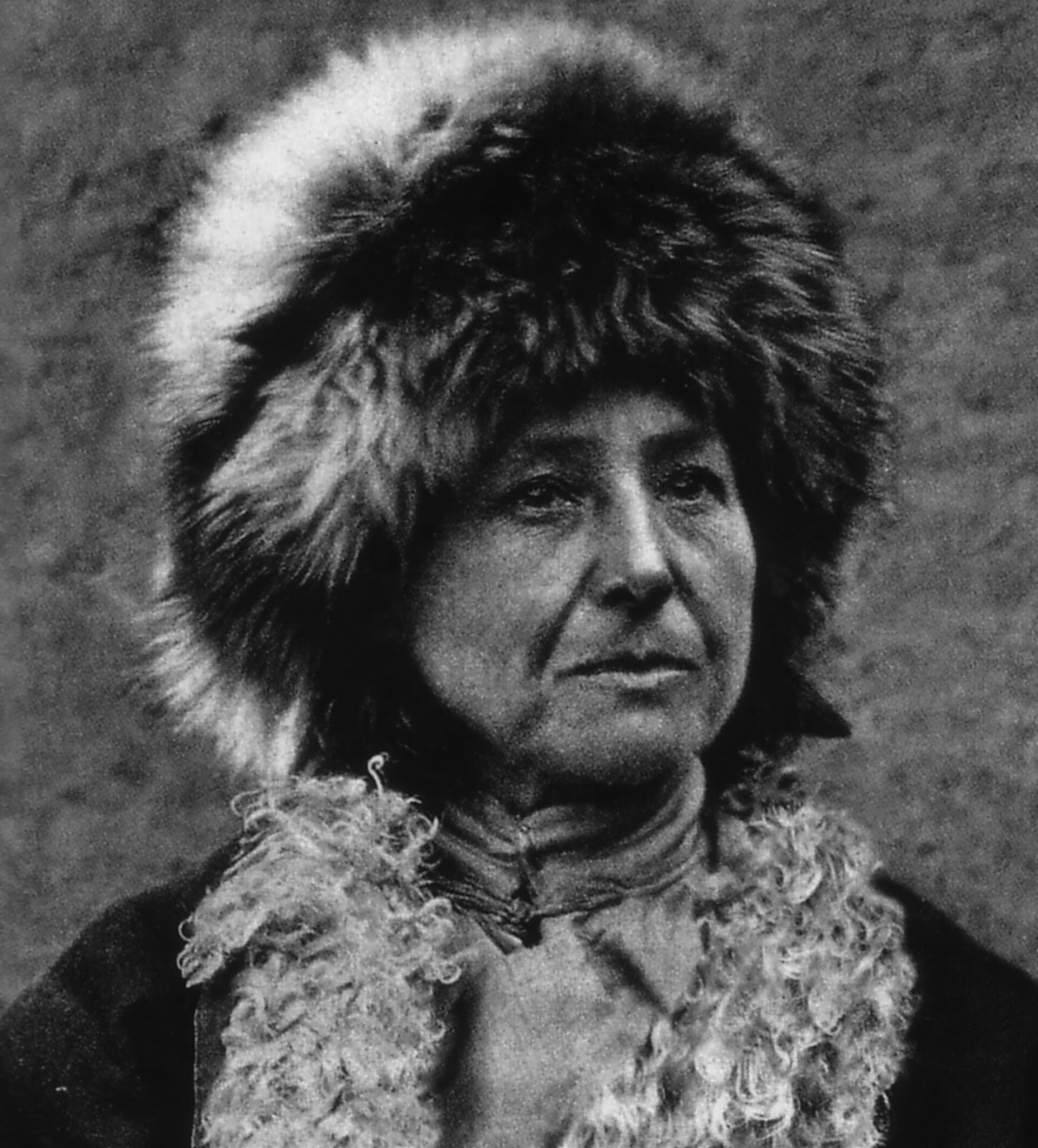
She first ran away at age five, she wrote an anarchist treatise that was translated into five languages, she has slept on a bed of nails, she has lived in caves.
And she once, according to the website Mysterious People, created “a psychic phantom produced by intense concentration…a stout, phantom monk, whose form gradually became less ghost like and more life like…was accompanying her on her travels and behaving almost like a normal human being.”
Unfortunately, it turned evil and she had to destroy it—an act that took six months of difficult mental concentration.
She is Alexandra David-Neel, born in the suburbs of Paris in 1868, died in 1969, at the age of 100. In between she lived a million lives, and when Miss Karret told me about her a few weeks back I quickly purchased one of her books, Magic and Mystery in Tibet. Inside the cover is a photo of David-Neel, dressed as a Tibetan hermit, wearing a magic dagger and a rosary cut from 108 different human skulls.
The book is not so much a travelogue as a glittering academic examination of otherworldly phenomenon in Tibet among a secret group of psychic sages. But it is David-Neel’s journey into mysterious death rituals that have been most interesting to me. In fact, early on in the book, echoing a topic that inspired by David Bowie I had been thinking about just the other week, she says: “The Lamaists think that after having learned the art of living well, one must learn the art of dying well and of ‘doing well’ in other worlds.”
Reading on, the book becomes like a passage into an exotic and impossible world, it seems uncanny that she has seen the things she says she has seen. In one scene David-Neel is in a village in Sikkim, a state in northwestern India, deep in the Himalayas. She is returning from an excursion in the forest when she hears a sharp cry, unlike anything she has ever heard before. Crawling quietly through the brush she discovers two monks seated under the trees, their gazes lowered in meditation:
Hik! cried one…Hik! repeated the other after a few minutes. And so they continued, with long intervals of silence…After having watched them for some time, I saw one…put his hands upon his throat. His face expressed suffering, he turned his head to one side and spat out a stream of blood.
David-Neel learns that the monks are practicing a ritualistic cry shouted beside a person who has just died in order to free their spirit, which exits through a hole that this magic utterance opens in the skull.
Later, she discusses delogs, people who are not quite living but not quite dead, and wander through this world in a state of lethargy. “A woman whom I met in a village of Tsarong had, some years ago, remained inanimate for a whole week,” writes David-Neel. “She had only to wish herself in a certain place to be there immediately; she could cross rivers, walking upon the waters, or pass through walls. There was only one thing she found impossible—to cut an almost impalpable cord that attached her ethereal being to the material body which she could see perfectly well sleeping upon her couch.”
Such mystical encounters are exactly what every traveler in some way desires, an epic journey to a magical land, a brush with something grand and mysterious, encounters with people whose powers cross into the supernatural. Well, at least that is what this traveler wants. But David-Neel is much more than the parachute traveler, breezing in and breezing out, she spent years in Tibet, and writes and speaks fluently all of its’ dialects.
Anyway, I am still reading the book, and afterward plan to check out her first one, My Journey to Lhasa, which describes her 8,000-mile journey, much of it disguised as a beggar with yak hair extensions, to the forbidden Tibetan city.









